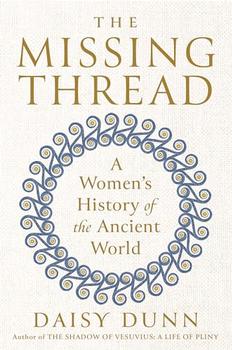
How Languages Reveal Differences in How We Think
by Caleb Everett
A sweeping exploration of the relationship between the language we speak and our perception of such fundamentals of experience as time, space, color, and smells.
We tend to assume that all languages categorize ideas and objects similarly, reflecting our common human experience. But this isn't the case. When we look closely, we find that many basic concepts are not universal, and that speakers of different languages literally see and think about the world differently.
Caleb Everett takes readers around the globe, explaining what linguistic diversity tells us about human culture, overturning conventional wisdom along the way. For instance, though it may seem that everybody refers to time in spatial terms—in English, for example, we speak of time "passing us by"—speakers of the Amazonian language Tupi Kawahib never do. In fact, Tupi Kawahib has no word for "time" at all. And while it has long been understood that languages categorize colors based on those that speakers regularly encounter, evidence suggests that the color words we have at our disposal affect how we discriminate colors themselves: a rose may not appear as rosy by any other name. What's more, the terms available to us even determine the range of smells we can identify. European languages tend to have just a few abstract odor words, like "floral" or "stinky," whereas Indigenous languages often have well over a dozen.
Why do some cultures talk anthropocentrically about things being to one's "left" or "right," while others use geocentric words like "east" and "west"? What is the connection between what we eat and the sounds we make? A Myriad of Tongues answers these and other questions, yielding profound insights into the fundamentals of human communication and experience.
"Everett relates complex linguistic discussions in accessible terms, and each page is full of thought-provoking insights." ―Publishers Weekly (starred review)
"Highly recommended for all collections that support higher education, particularly in the areas of linguistics, anthropology, and language education." —Library Journal (starred revew)
"An expansive look at how humans communicate...An engaging, informative overview of interesting linguistic matters." ―Kirkus Reviews
"Blending an ethnographer's richness with an experimentalist's clarity, Everett adroitly explains how what we've learned from data-driven studies of a myriad of tongues–from Amazonia and Africa to Australia and Austronesia–has dramatically shifted our understanding of the origins and nature of our species' most salient ability: language. Far from being an isolated projection of innate psychology, languages evolve like other aspects of culture, adapting to our ecological contexts, social norms, acoustic environments, and cognitive inclinations. Languages also shape how speakers think, feel, and even perceive. With balance and breadth, this book offers an easy entry into a fascinating, though often ferocious, interdisciplinary field." ―Joe Henrich, author of The WEIRDest People in the World: How the West Became Psychologically Peculiar and Particularly Prosperous
"A marvelous tour of all that is amazing, perplexing, satisfying, and mysterious about languages and the humans who speak them. Everett combines up-to-date analyses with vivid descriptions of the diverse tools that humans use when they speak. His book drills down into deep mysteries but does so with a light hand, leading readers from one big question to the next. An essential read for anyone who wants to understand what we now know about language and how profoundly that understanding has recently evolved." ―Christine Kenneally, author of The Invisible History of the Human Race: How DNA and History Shape Our Identities and Our Futures
"Do different languages create different experiences of the world? Everett offers up a wealth of nuanced insights on the state of the science to replace both the old exoticism and the lazy skepticism. This is an overdue and fascinating book." ―Gaston Dorren, author of Babel: Around the World in Twenty Languages
This information about A Myriad of Tongues was first featured
in "The BookBrowse Review" - BookBrowse's membership magazine, and in our weekly "Publishing This Week" newsletter. Publication information is for the USA, and (unless stated otherwise) represents the first print edition. The reviews are necessarily limited to those that were available to us ahead of publication. If you are the publisher or author and feel that they do not properly reflect the range of media opinion now available, send us a message with the mainstream reviews that you would like to see added.
Any "Author Information" displayed below reflects the author's biography at the time this particular book was published.
Caleb Everett, Professor of Anthropology and Psychology at the University of Miami, is the author of Numbers and the Making of Us and Linguistic Relativity: Evidence across Languages and Cognitive Domains.






Your guide toexceptional books
BookBrowse seeks out and recommends the best in contemporary fiction and nonfiction—books that not only engage and entertain but also deepen our understanding of ourselves and the world around us.